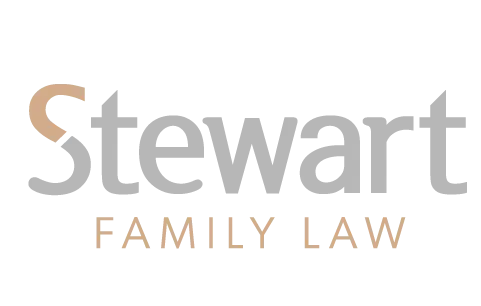
A Mediator is a neutral third party trained to assist parties in resolving disputes and avoiding the court system. Unlike Arbitrators, who make decisions on behalf of the parties, a Mediator does not impose solutions but rather facilitates dialogue and negotiation to help parties reach their own agreements.
In legal proceedings, particularly in family law matters, the role of a Mediator is pivotal in facilitating communication, understanding, and, ultimately, resolution between disputing parties. Mediation is a recommended, required step for most family law matters, as it gives both parties a chance to discuss issues, and many people find they can settle their parenting and property matters during this process.
This article looks at the essence of mediation, the mediation process and the crucial role Mediators play in reaching successful outcomes without going to court.
Mediation Promotes Communication and Understanding
Mediation promotes communication and understanding between parties by providing a structured environment for discussion and negotiation. It allows parties to express their concerns, interests, and priorities in a confidential setting.
In a courtroom setting, pressure can be high, and matters are formally and finally (unless appealed) decided on at the hearing. This can result in decisions made while people are stressed and emotional. With mediation, if an agreement cannot be reached during the first session, participants can take some time out and reconvene at a later date that is convenient to them both. This flexibility often allows for better decisions and outcomes that both parties are satisfied with being reached.
What Happens During A Mediation Session?
The mediation process typically begins with an initial individual session after one party initiates the process or both parties jointly initiate mediation. This will often occur in a dedicated mediation space, a neutral, hired private office or conference space, over the phone, or a video call. If one party has initiated the process, the other party will also be invited to attend.
From here, if both parties agree, a date and agenda will be set (usually a half day to a full day) for mediation to occur. Mediation can occur face to face, by ‘shuttle’ (with participants in separate rooms) or with one or both parties attending by video conference. Mediations are designed to occur in informal, comfortable settings, allowing both parties a neutral space to discuss and negotiate matters on the agenda.
This can take place over a few hours or a few days, depending on the matters being addressed and how willing both parties are to resolve a concern. Both parties will come into the mediation session with a clear idea of what issues are on the table for discussion, allowing them ample time to prepare and decide on their preferred outcomes.
What Does A Mediator Do During The Mediation Process?
During mediation sessions, the Mediator listens to each party’s perspective, identifies areas of agreement, and helps clarify issues in dispute. Through open communication and guided negotiation, parties work towards finding common ground and exploring possible solutions.
Mediation will begin with a Mediator explaining their role as an impartial third party, establishing ground rules and letting both parties know that their matter is confidential. Ground rules may include waiting for the other person to finish speaking, taking a break if emotions run too high or focusing on a fair outcome rather than reviewing past matters. Topics for mediation will be outlined – such as reaching an agreement on schooling for children, deciding how to split assets and debt, or reworking an existing parenting arrangement to suit changes in circumstances.
Lawyers may represent parties, but the Mediator remains impartial and focuses on guiding the discussion towards resolution. Mediators cannot give legal advice, so some participants choose to have lawyers present when they mediate.
While parties talk about their situation, what they want to achieve, and how they will move forward from what is, a Mediator refrains from judging what is right or wrong – listening and asking questions to help the matter proceed to a successful outcome.
Mediation vs. Court Action
Unlike court action, where legal representatives advocate for the parties’ interests, mediation focuses on empowering parties to communicate directly, identify common interests, and explore mutually acceptable solutions with the assistance of a neutral mediator.
It is a non-adversarial approach that allows participants to have the space to agree on their terms. More importantly, mediation is a recommended first step for most family law matters, and an attempt to mediate generally needs to be shown to the court before court proceedings can commence.
The court is unfortunately going to be a necessity for some high-conflict or complex matters, but even in these situations, mediation can be helpful to narrow down matters to be heard by the court.
When Is Mediation Not Suitable For Resolving Family Law Matters?
Mediation is not suitable for matters in which one (or both) parties refuse to cooperate or be open to reaching a resolution. This can be due to high levels of emotion, such as anger or hurt, or a refusal to resolve matters amicably, such as high-conflict relationship breakdowns.
Matters involving family violence that require immediate action, such as protection orders, or present safety issues are often not suitable to be mediated. However, mediation is still an option if the safety of both parties is confirmed.
Family law matters pertaining to child abuse, parental alienation, lack of disclosure or when one or both parties are experiencing significant mental or intellectual conditions or have addiction issues that prevent reasonable communication from taking place are other considerations where mediation may not be the ideal choice for resolution.
Costs of Mediation Sessions vs Costs Of Court
There can be substantial cost differences when comparing the costs of mediation versus court proceedings. Mediation, whether conducted through private mediation or community based family dispute resolution practitioners, generally entails much lower financial outlays compared to navigating the court system.
During court proceedings, parties often face substantial expenses, including filing fees and potential expert witness fees, driving up the overall cost. In contrast, mediation expenses primarily consist of the Mediator’s fees and administrative costs, making it a more cost-effective option for resolving disputes. Moreover, mediation typically requires fewer sessions, which places less financial strain on the parties involved.
Family Dispute Resolution Practitioners
Mediators may or may not also be Family Dispute Resolution Practitioners who specialise in children’s matters and are able to issue s60I certificates. Both undergo thorough training and adhere to national mediator accreditation standards. They possess skills in communication, conflict resolution, and facilitating constructive dialogue.
Differences Between a FDR Practitioner and a Mediator
Although Family Dispute Resolution (FDR) practitioners and mediators share common goals of facilitating dispute resolution, their roles and focus areas differ significantly. FDR practitioners, accredited by the Family Dispute Resolution Practitioners Accreditation Board, specialise in family law disputes, particularly parenting arrangements following relationship breakdowns and are able to issue s60I certificates (which are generally required before court proceedings can be commenced).
In contrast, mediators may operate across various domains, including commercial, workplace, and community disputes, and are guided by the National Mediator Accreditation Standards. Some mediators specialise in family law matters, though.
Mediators and FDR Practitioners emphasise impartiality and assist parties to reach agreements without the intervention of the court.

Accreditation Boards for Mediators in Australia
Australia has several accreditation boards tasked with overseeing Mediators’ accreditation and professional standards. Among these, the Mediators Standards Board plays a prominent role in maintaining the National Mediator Accreditation Standards (NMAS).
These standards ensure accredited Mediators meet rigorous competency and ethical benchmarks, fostering confidence in the Mediation process among parties and legal professionals. By adhering to NMAS guidelines, Mediators uphold principles of impartiality, confidentiality, and professionalism, thereby instilling trust in their ability to facilitate successful mediation outcomes across diverse contexts.
Types of Family Law Disputes Resolved with Mediation
Mediation serves as a versatile tool for resolving a wide array of family law disputes, encompassing issues such as parenting arrangements, property settlements, spousal maintenance, and financial matters. Whether parties are embroiled in conflicts over parenting arrangements, division of assets, or post-separation financial arrangements, mediation provides a conducive environment for constructive dialogue and negotiation.
Each party’s lawyer can also attend mediation sessions to provide legal advice, enable parties to identify common ground, explore potential solutions, and reach mutually beneficial agreements. Mediation empowers parties to address family law matters effectively and achieve sustainable resolutions tailored to their unique circumstances by fostering communication, understanding, and collaboration.
Do you need a highly experienced Mediator in Brisbane for a family law matter you are currently facing? Get in touch with the team at Stewart Family Law today.
Successful Mediation
Successful mediation in family law results in a mutually agreed upon settlement or parenting plan being formed that addresses the parties’ interests and concerns. This negotiated outcome empowers parties to have more control over the resolution process compared to court proceedings.
Parties will likely need to engage a solicitor or family law practitioner to finalise the process, having legally binding documents drawn up to solidify agreements reached during mediation. Some mediation practitioners will provide a drafted copy of agreements reached for each party’s solicitor, and others will require participants to organise this aspect of finalisation on their own behalf.
Alternative Dispute Resolution
Mediation is a form of alternative dispute resolution (ADR) that offers parties a more flexible and cost-effective approach to resolving disputes than litigation. In Australia, ADR refers to a process facilitated by an independent third party to resolve any legal dispute without attending court.
As an independent third party, ADR practitioners do not have the final say on the outcome, as a Judge, Magistrate, Jury or tribunal would. Resolving disputes via alternative methods encourages cooperation, communication, and the exploration of creative solutions tailored to the parties’ circumstances.
The ADR process is a recommended starting point for many conflicts and disputes across a wide range of legal issues in Australia, allowing both parties to express their views and desired outcomes without the pressure and expenses of the court.
What Is An Arbitrator, And How Are They Different From Mediators?
Arbitration and mediation are both alternative dispute resolution techniques recognised by the Australian legal system, which are popular options for keeping your matter out of court. While both serve as impartial and neutral third parties to resolve conflicts and disputes, there is a big difference in their roles in terms of responsibilities.
Both arbitration and mediation require the parties to agree to attend – they are both a voluntary process (unless mediation has been ordered), unlike court. The difference comes down to the role that each plays. A Mediator cannot decide on an outcome for you. For a resolution to occur at mediation the parties must reach an agreement.
Arbitrators decide on the outcome of matters before them, like a less formal judicial process than in a courtroom. Both parties must agree for this to happen before commencing the arbitration process. An Arbitrator cannot decide on parenting matters.
Mediator’s Role in Resolving Disputed Issues
The Mediator helps parties navigate through disputed issues by encouraging open communication, reframing perspectives, and exploring creative solutions. They remain impartial throughout the process, ensuring fairness and neutrality.
What Is A Mediator’s Role In Formalising An Outcome For Parenting Or Settlement Agreements?
A Mediator’s role extends to assisting parties in drafting settlement agreements that reflect the terms of their negotiated resolution. While mediators do not provide legal advice, they facilitate discussions to ensure parties understand the implications of their agreements.
Whilst an Arbitrator will decide on the matter and formalise it, a Mediator listens, draws up agreements reached (in most cases) and parties seek to have a legal practitioner action the agreement reached.
Qualifications for a Mediator in Australia
In Australia, aspiring Mediators must meet stringent qualifications and adhere to national mediator accreditation standards set forth by accreditation boards such as the Mediators Standards Board. While formal degrees are not mandatory, Mediators undergo rigorous training programs to acquire essential skills in conflict resolution, communication, and negotiation.
These programs equip Mediators with the expertise needed to serve as impartial third parties, guiding parties towards negotiated outcomes in mediation sessions. Additionally, ongoing professional development ensures that Mediators stay ahead of evolving mediation practices and maintain high ethical standards throughout their careers.
Mediation Participants Can Influence The Process Mutually – And The Outcomes
In mediation, parties jointly direct the process and have the authority to determine the outcome. This collaborative approach fosters a sense of ownership over the resolution and encourages parties to work together towards a mutually beneficial agreement.
Unlike arbitration or court, no ‘judgment’ is made; instead, a mutually beneficial agreement is reached. Other participants may include lawyers representing one or both parties, who will act as a sounding board for any decisions being made and advise their clients on courses of action during the mediation process.

Agreement Reached through Mediation
When parties reach an agreement through mediation, it can be formalised by way of a parenting plan, court order or financial agreement. The agreement reached at mediation reflects the parties’ negotiated terms and provides a framework for resolving their disputes amicably.
It may be necessary to have further paperwork drafted or submitted to the court to finalise, depending on the agreements reached and how parties decide to solidify them.
Confidentiality in Mediation
Confidentiality is fundamental to mediation, ensuring that discussions and negotiations remain private and cannot be used as evidence in court proceedings without the parties’ consent. This promotes open and honest communication during mediation sessions.
Mediation as an Alternative to Litigation
Mediation offers parties an alternative to litigation by providing a less adversarial and more collaborative approach to resolving disputes. It allows parties to preserve relationships, maintain control over the outcome, and save time and costs associated with court proceedings.
A Mediator plays a crucial role in facilitating communication, understanding, and resolution between parties involved in disputes. Through mediation, parties can communicate openly, explore possible solutions, and reach agreements that address their interests and concerns. Mediation offers a flexible, confidential, and cost-effective alternative to litigation, empowering parties to resolve their disputes amicably with the assistance of a neutral and impartial mediator.
A Mediator holds a space for willing parties to reach a point of agreement, guiding them towards an outcome that works for both parties. It’s an excellent option for participants who desire to reach common ground, but need some additional structure to do so. Please contact our team for more information, or if you are ready to get started, you can begin your Mediation process with us today.





